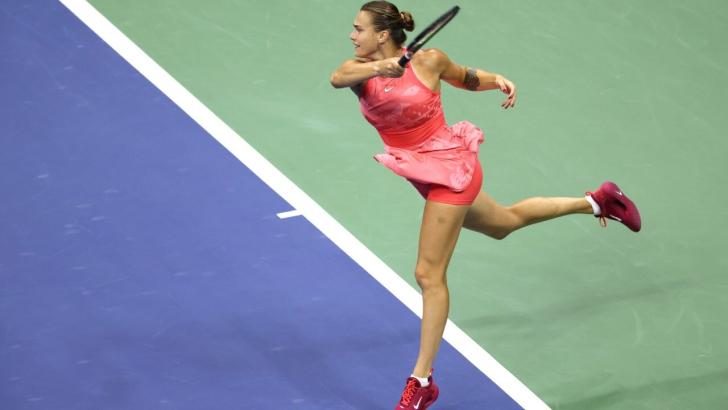Recommended Reasons For Selecting Winning Tennis Picks Strategy
Wiki Article
10 Tips On Surface And Conditions When Making Tennis Predictions
It is vital to study the surface and conditions of play when making tennis forecasts. Here are 10 ways to effectively analyze these factors: Surface Preferences Different players have different strengths on different surfaces. Clay players can be a challenge on grass. Hardcourt players might be unable to play on clay courts due to their slowness. Always take into account the player's previous performance on the court that will be used in the game.
Court Speed Court Speed court isn't the same even on the same surface. The faster surfaces (like grass or some hardcourts) favour aggressive players and large servers. However, slow surfaces (like clay) favor baseline grinders with high stamina.
The surfaces can affect the bounce of a ball in a variety of ways. Clay courts produce a high bounce, which can be advantageous for players with heavy topspin. Grass courts produce lower bounce, favored by low-spin hitters and serve-and volley players.
Conditions in the weather can alter playing conditions significantly. The humidity can cause a slowing of the ball's speed when it's hot. The wind can affect timing and favor players with better ability to adapt.
Indoor vs. Indoor: The absence of factors like sun and wind makes the game more easy to anticipate and more suitable for players who are able to make accurate and powerful shots. Outdoor games, on other hand, require greater flexibility due to changing weather conditions.
Thinner air at high altitudes, like the ones of specific South American tournaments, causes the ball's bounce to be greater. This usually is an advantage for players who are aggressive with strong servers, tournaments and other events played at high altitudes.
Recent Surface Change: Participants are often struggling to transition between different surfaces. This is especially the case during the initial rounds of a competition. Make predictions based on how recent a player's switch from one surface to another was.
Particular conditions for every tournament: Every tournament has its own unique particularities. For example, some have particular ball types and courts with specific speeds. Knowing these specifics gives you an edge when forecasting results.
Match duration In slower surfaces, such as clay, matches tend to last longer, favoring players with superior stamina and consistency. However, surfaces with faster speeds often lead to shorter rallies and faster points.
Preparation & Adaptability Some players are able to change surfaces rapidly, while other need more time. Analyze each player's previous experience with adapting to changes in surfaces, particularly when the tournament is just getting underway.
By incorporating these surface- and conditions-related variables, you can predict more accurately tennis matches and give you a better idea of what tennis matches will be like. Have a look at the top tennis Predictions For Tonight for website recommendations including atp odds, tennis oddschecker, betting recommendations, best bets today, todays matches and predictions, tennis sports betting, atp paris predictions, best betting picks today, us open mens final odds, sure win prediction today and more.

Tennis Predictions: 10 Tips On Psychological Aspects
These elements could have a significant impact on the outcome of the game. Here are ten tips to consider when analyzing these factors for making predictions:Confidence Levels: Assess the player's confidence based on their recent performances and achievements. A player who is coming off a massive victory, or is in a winning streak may have more confidence and poise. On the other hand losing players may lack confidence in themselves.
Mental Toughness: Look at how well players handle stress, especially during crucial situations like tiebreaks or break points. The players who are renowned for their mental resilience often perform better under stress.
Look at how players have performed before. Psychological aspects, such as "mental blocks" against a foe, can affect performance.
Dealing with adversity. Think about the way your players deal with setbacks, such as losing the set or getting behind during a game. People with a strong ability to solve problems and the ability to stay focused are more likely to turn matches around.
Motivation and Goals - Evaluate the motivation of a person in relation to their goals currently. Someone with the goal of achieving a higher ranking or winning a significant prize may be more motivated.
Pressure of Expectations: Examine the players' reactions to pressure from fans, media or personal goals. A player with a high standard may take on the challenge or succumb to the pressure of their expectations.
Stability of emotions: The fluctuation of emotions can affect the performance. Players who are able to manage their emotions are more likely to remain consistent during a match.
Consider the impact of an injury that you have suffered recently on your performance. A person who has recovered from an injury could be unsure or cautious and this may impact their performance. However, on the contrary, a recovered athlete may feel more confident.
Recent Changes. Analyze whether recent events (such as a coach change or life-altering event) can affect a player psychological condition. Positive changes can enhance performance, while negative ones can have the opposite impact.
Crowd Influence: Think about how players respond to crowd acceptance or hostility. Some players thrive with home crowd support, while others might feel pressured or distracted by the crowd's reactions.
It is possible to make more precise and informed predictions if you incorporate psychological aspects into your analysis. View the most popular Predictions for site examples including today tips, wta odds, best betting tips, betting and prediction, wta picks, tennis matchup, bets today, picks predictions, sure win prediction today, tonight matches predictions and more.

10 Suggestions About Match Location When Making Predictions About Tennis Matches
Ten tips for analyzing locations of matches to help you determine your predictions. Ten points to remember when you analyze the venue to make your predictions.Home Advantage: Players do better in home settings due to their surroundings being familiar and a welcoming crowd. Assess whether the player has a solid record at this location and consider how the local crowd might influence the player's performance.
Different tournaments are played on different surfaces. Some players may be better off on surfaces that are familiar to them. Compare each player’s strengths and weaknesses with the type of surface at the location.
Weather and Climate: Local weather conditions like temperatures, humidity, and wind speed, can influence play. Study the performance of each player in similar conditions and also their response to weather changes.
Altitude: Locations with high altitude (such as the tournaments that take place in Mexico City and Bogota) can make the ball fly faster and bounce higher. People who are experienced with these conditions or who have done well in similar situations could have a leg up.
Indoor vs. Outdoor courts: Indoor courts can be free of weather variables, while outdoor courts are exposed to elements like wind sun, rain, and other elements. Examine the performance of each player in both an outdoor and indoor setting.
Travel Fatigue: Be aware of the distance that each participant has traveled. Long journeys may lead to fatigue and impact the performance. This is particularly the case in the early rounds.
Venue Size and Atmosphere - The atmosphere and size of the venue could influence players. While large, noisy spaces can frighten smaller spaces with a more intimate feel might feel more cosy.
Event Importance: The importance and the location of a competition can have an impact on performance. Participants may be more enticed to participate in Grand Slams, tournaments of a high standard as well as other high-stakes events as opposed to lower-level tournaments.
Surface Condition even within the same type of surface conditions can be different. Clay courts, for example could play differently depending on the weather conditions or how well they're maintained.
Historical and Record. Due to their own achievements or due to their familiarity of a particular place, some players enjoy a historical advantage. To predict the outcome of a game look up past performances at a specific location.
You can increase your accuracy by studying these factors.